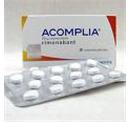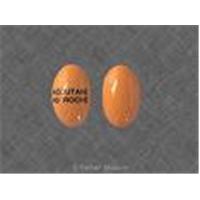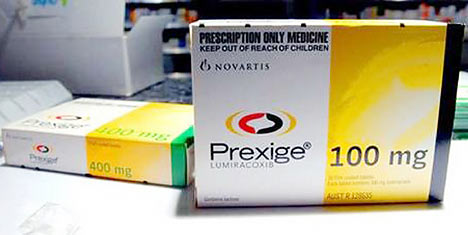Doctors at the Mayo Clinic have discovered that the popular over-the-counter dietary supplement 5-Hydroxy-L-Tryptophan (5-HTP) may have the same contaminant found in a similar supplement banned nearly a decade ago after being associated with a rare and occasionally deadly blood disease. So far, there are no known cases of anyone becoming ill from taking contaminated supplements, Mayo researchers said, but they’re warning people to avoid taking high doses of it for fear of triggering an outbreak of a possible fatal illness.
The contaminant is similar to one found in tainted batches of a related amino acid dietary supplement, L-tryptophan, which killed 30 people and sickened more than 1,500 in 1989, said Dr. Stephen Naylor, one of the Mayo researchers. It had been used by an estimated 15 million Americans as a remedy for depression, premenstrual syndrome and insomnia.
Since then, the supplement has been replaced by a version called 5-HTP or sometimes 5-OH-Trp, which is derived from a plant, sold over the counter and promoted for variety of problems by several manufacturers. Now Naylor and his colleague, Dr. Gerald Gleich, found the contaminant, known as “peak x,” in all six batches of 5-HTP that they sampled from health and nutrition stores in New York and Rochester, Minn. The same contaminant was linked to a small outbreak of a disease known as eosinophilia-myalgia syndrome (EMS), in 1991, and is chemically similar to – but not the same as – the contaminants discovered in the fatal outbreak in 1989.
“I don’t believe the present environment requires that these things are pulled off the shelves,” said Naylor, whose findings were published today in the journal Nature Medicine. “But on the other hand, based on our fairly extensive experience with this disease . . . we have cause for concern.”
Gleich, however, said that in his opinion, people should stop taking the supplements. Naylor added that they don’t even know what a safe level would be. The Mayo researchers notified the U.S. Food and Drug Administration (FDA) about their findings, but the FDA declined to say what action, if any, it is taking. Michael Osterholm, the Minnesota state epidemiologist, said it would be up to the FDA to decide if the supplements should be pulled from the market. But, he said, “if this is a product that has the potential to cause {EMS}, that is a very serious illness and people need to be aware of that.”
The researchers found that the new supplements have anywhere from 3 to 15 percent of the levels of contaminant that were linked to a 1991 case, in which a Canadian family became ill after taking 5-HTP.
Even with small levels of contaminants, Naylor said, people could get a potentially toxic dose if they take too much. Because the supplements aren’t regulated, there’s no control over how much people take. At least one new book is recommending doses of 300 to 900 milligrams a day, which the doctors say could bring the contaminants to dangerous levels. “We would just like to let the public know that there is a concern, that they should be cautious, and they should certainly forgo taking high doses of 5-HTP,” said Naylor.
The symptoms of EMS, a blood disorder, include fatigue, muscle aches, soreness, numbness, tingling and other nerve problems. Gleich said anyone who has been taking the supplements and is experiencing those symptoms, should call a doctor and have a blood test. “The potential, we believe, is there, and we think a warning is appropriate,” said Gleich, Naylor’s co-author.
The Mayo researchers started testing 5-HTP in April at the request of a TV news show, “Dateline NBC,” which was preparing a story on contaminated food supplements. The Mayo doctors also said their discovery underscores the potential dangers of so-called natural products. Said Naylor, “Some of the most potent toxins known to the human race are derived from plant species, so natural does not necessarily mean safe.”
Gleich noted that there have been no reports of illness so far. “Had we seen cases then this would have quickly evolved very differently. There may be cases, we’re simply not aware of it.”
The Mayo clinic played a key role, along with the Minnesota Department of Health, in tracing the cause of the 1989 outbreak to the tainted batches of L-tryptophan. The manufacturer, a Japanese company, reportedly paid $2 billion to settle claims from the outbreak.
![Pradaxa [320x200].jpg](https://www.elixirnews.com/assets_c/2011/04/Pradaxa%20%5B320x200%5D-thumb-200x200-480.jpg) Pradaxa, on the other hand, taken twice daily, do not affect the diet as much and can be up to 39 per cent better at preventing strokes, the American College of Cardiology was told.
Pradaxa, on the other hand, taken twice daily, do not affect the diet as much and can be up to 39 per cent better at preventing strokes, the American College of Cardiology was told.







